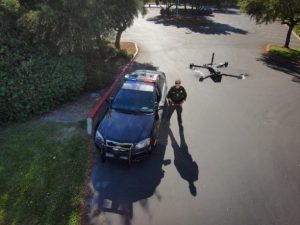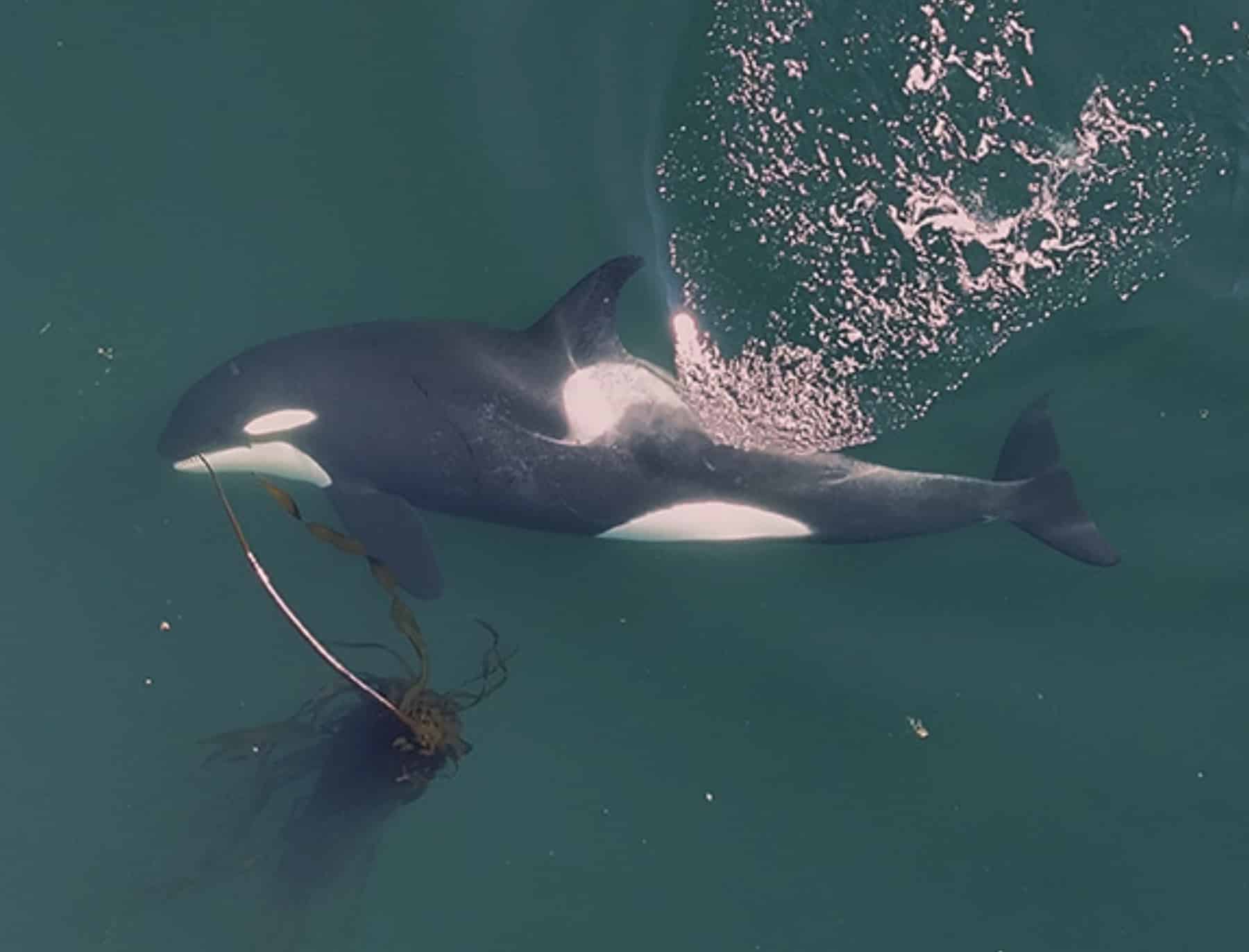Drone Footage Reveals Orca Innovation: Crafting Kelp Tools for Social Grooming
If you thought beauty treatments were exclusively human, orcas have proven otherwise. Thanks to advancements in drone technology and the dedicated efforts of whale researchers, it’s now evident these ocean giants have their version of a “spa day,” complete with tools, rituals, and preferred choices of seaweed.
Let’s delve into this fascinating discovery, understand its implications for our understanding of animal culture, and explore why the sight of killer whales engaging in “kelp grooming” has captivated researchers and ocean enthusiasts alike.
A “Kelp Spa Day”? The Unexpected Find for Scientists
Envision piloting a drone over the frigid waters along North America’s west coast. Below, southern resident killer whales glide seamlessly. Then, an unusual activity catches your eye: the whales aren’t merely swimming; they’re breaking off bull kelp strands, turning them into makeshift brushes, and rolling them across each other’s skin.
This isn’t mere play or feeding activity. It’s a refined social behavior, never previously recorded in marine mammals, where orcas create and utilize kelp tools for grooming purposes.
The Role of Drones in This Discovery
For almost five decades, whale observers and scientists scrutinized orcas from vessels without detecting this behavior. But with advanced drones equipped with high-resolution cameras, researchers from the Center for Whale Research observed unprecedented details of orca pods. This led to the revelation of the “allokelping” phenomenon, where kelp is used for scrubbing and bonding rituals.
Lead researcher Michael Weiss remarked, “Despite it being a frequent behavior—observed almost daily when using drones—such behavior was undiscovered in this population despite nearly 50 years of dedicated observation.”
Understanding the Orcas’ Use of Kelp
The Ritual
- Tool-making: An orca breaks a bull kelp strand with a precision akin to craftsmanship.
- Partner collaboration: The orca places the kelp on a partner whale and rolls it between them, often for minutes, with different ages and sexes participating.
- Social bonds: These sessions often involve close relatives or similarly aged friends, highlighting deep social connections.
The Purpose Behind the Behavior
Hygiene: Whales with dormant or molting skin are particularly drawn to this kelp action, likely using it to exfoliate and remove parasites. Fascinatingly, kelp-based skincare is also trending among humans.
Socialization: This epitomizes social grooming—a must akin to a back rub or a playful hair braid. These actions strengthen social ties, alleviate tension, and potentially elevate an individual’s standing within the pod.
Cultural Learning: With orcas of all ages and genders participating, this behavior seems culturally transmitted—a rarity among non-human species.
The Significance of This Discovery
While other animal species like chimps and crows are renowned for tool use, observing the same in marine mammals is rare. Dolphins have been seen using sponges for foraging, but killer whales crafting social tools marks a first.
This discovery not only broadens our definition of animal intelligence but also offers insights into orca societies. These southern resident killer whales, known for their complex languages and hunting skills, now showcase beauty and hygiene rituals too. This wouldn’t have been possible without drone technology.
About Southern Resident Killer Whales
This unique behavior was documented within the southern resident killer whale population, a critically endangered group of fewer than 80 individuals in the Pacific Northwest. Their survival is already threatened by declining salmon populations and pollution. Understanding their tool use emphasizes the importance of their conservation, revealing more to learn from these whales.
Exploring the Cultural Transmission
Currently, the behavior has been confirmed only among the southern resident population. It’s still uncertain if orcas elsewhere perform similar rituals or if this represents a localized tradition. This raises intriguing questions—could tool-assisted grooming be a global orca secret, or merely a family tradition?
Insights from Experts
Orca Social Complexity
- Family Bonds: Orcas exhibit lifelong family pod loyalty, creating matrilineal clans and passing down knowledge.
- Communication: Each pod uses its unique “dialect,” a blend of distinctive clicks and calls.
- Playful Nature: Known for their playful antics, like surfing and salmon tossing, orcas now add kelp grooming to their repertoire.
Fun Facts
- The term “allokelping” was coined specifically for this novel social grooming behavior.
- Kelp is a popular ingredient in human skincare; perhaps orcas set the trend.
The Future of this Research
Questions linger about the extent and benefits of this behavior, including its geographic reach, potential health advantages, and environmental challenges. Understanding these answers could revolutionize marine scientific knowledge.
The Role of Drones in Marine Research
Drones offer a minimally invasive method of observing wildlife behavior in real-time, leading to new insights into aquatic life and aiding conservation efforts by spotlighting unique behaviors.
Why This Discovery Matters
- Diverse Intelligence: From avian tool use to orcas navigating kelp, intelligence spans beyond human realms.
- Cultural Conservation: The loss of populations like these whales means a loss of cultural tradition.
- Ocean Secrets: Continuous exploration and discovery highlight the need for marine ecosystem conservation.
Final Thoughts
The next time orcas are labeled merely as “killer whales,” share this insight: they’re innovators, beauticians, and social creatures, not just hunters. When we save orcas, we’re preserving unique narratives in the natural world, reminding us of the vast cultural diversity within it.
As you apply kelp-infused skincare, remember: somewhere off the Pacific shores, an orca might be nurturing its skin similarly, teaching us all lessons in friendship, creativity, and self-care.
Source: Original Article













